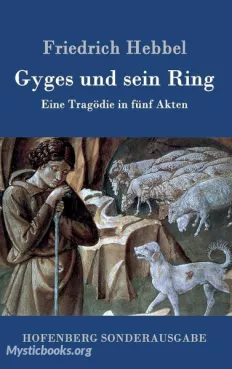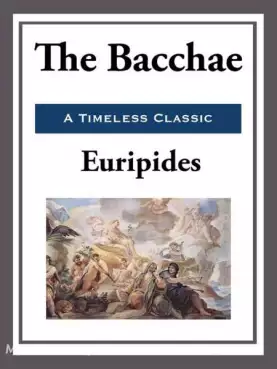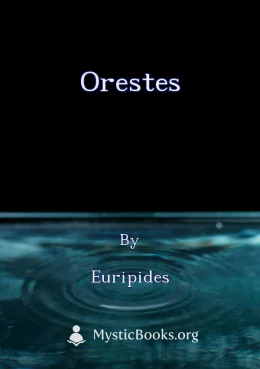
The Spanish Tragedy
by Thomas Kyd
'The Spanish Tragedy ' Summary
Before the play begins, the Viceroy of Portugal rebelled against Spanish rule. A battle took place in which the Portuguese were defeated and their leader, the Viceroy's son Balthazar, killed the Spanish officer Andrea before being taken captive by the Spanish. Andrea's ghost and the personification Revenge itself are present onstage throughout the entirety of the play and serve as chorus. At the end of each act, Andrea bemoans the series of injustices that have taken place and then Revenge reassures him that those deserving will get their comeuppance. The Ghost of Andrea and Revenge open the play in Act 1 and close the play in Act 5 with descriptions of the Classical underworld. There is also a subplot concerning the enmity of two Portuguese noblemen, one of whom attempts to convince the Viceroy that his rival has murdered the missing Balthazar.
The King's nephew Lorenzo and Andrea's best friend Horatio dispute over who captured Balthazar. Though it is made clear early on that Horatio defeated Balthazar and Lorenzo has essentially cheated his way into taking partial credit, the King leaves Balthazar in Lorenzo's charge and splits the spoils of the victory between the two. Horatio comforts Lorenzo's sister, Bel-imperia, who was in love with Andrea against her family's wishes. Despite her former feelings for Andrea, Bel-imperia soon falls for Horatio. She confesses that her love for Horatio is motivated partially by her desire for revenge: Bel-imperia intends to torment Balthazar, who killed her former lover Andrea.
Meanwhile, Balthazar is falling in love with Bel-imperia. The Spanish king decides that a marriage between Balthazar and Bel-imperia would be an excellent way to repair the peace with Portugal. Horatio's father, the Marshal Hieronimo, stages an entertainment for the Portuguese ambassador. Lorenzo, suspecting that Bel-imperia has found a new lover, bribes her servant Pedringano and discovers that Horatio is the man. He persuades Balthazar to help him murder Horatio during an assignation with Bel-imperia. Hieronimo and his wife Isabella find the body of their son hanged and stabbed, and Isabella is driven mad. (Revisions made to the original play supplement the scene with Hieronimo briefly losing his wits as well.)
Lorenzo locks Bel-imperia away, but she succeeds in sending Hieronimo a letter, written in her own blood, informing him that Lorenzo and Balthazar were Horatio's murderers. Hieronimo's questions and attempts to see Bel-imperia convince Lorenzo that he knows something.
Afraid that Balthazar's servant Serberine has revealed the truth, Lorenzo convinces Pedringano to murder Serberine, then arranges for Pedringano's arrest in the hopes of silencing him too. Hieronimo, appointed judge, sentences Pedringano to death. Pedringano expects Lorenzo to procure his pardon, and Lorenzo, having written a fake letter of pardon, lets him believe this right up until the hangman drops Pedringano to his death.
Lorenzo manages to prevent Hieronimo from seeking justice by convincing the King that Horatio is alive and well. Furthermore, Lorenzo does not allow Hieronimo to see the King, claiming that he is too busy. This, combined with his wife Isabella's suicide, pushes Hieronimo past his limit. He rants incoherently and digs at the ground with his dagger. Lorenzo goes on to tell his uncle, the King, that Hieronimo's odd behaviour is due to his inability to deal with his son Horatio's newfound wealth (Balthazar's ransom from the Portuguese Viceroy), and he has gone mad with jealousy. Regaining his senses, Hieronimo, along with Bel-imperia, feigns reconciliation with the murderers, and asks them to join him in putting on a play, Soliman and Perseda, to entertain the court.
When the play is performed, Hieronimo uses real daggers instead of prop daggers, so that Lorenzo and Balthazar are stabbed to death in front of the King, Viceroy, and Duke (Lorenzo and Bel-imperia's father). He cast the play in such a way that both himself and Bel-imperia could exact their own revenge by actually killing the murderers. Bel-imperia chooses to stab herself during the play too, although this was not Hieronimo's intention for her. Hieronimo tells everyone of the motive behind the murders, bites out his own tongue to prevent himself from talking under torture, and kills the Duke of Castille and then himself. Andrea and Revenge are satisfied, and promise to deliver suitable eternal punishments to the guilty parties.
Book Details
Authors

Thomas Kyd
England
Thomas Kyd was an English playwright, the author of The Spanish Tragedy, and one of the most important figures in the development of Elizabethan drama. Although well known in his own time, Kyd fell i...
Books by Thomas KydDownload eBooks
Listen/Download Audiobook
- Select Speed
Related books

Doctor Johannes Faust by Karl Joseph Simrock
Das Puppenspiel "Doctor Johannes Faust" von Karl Joseph Simrock erzählt die Geschichte des berühmten Gelehrten, der durch einen Pakt mit dem Teufel un...

Beth Gêlert, or the Grave of the Greyhound by William Robert Spencer
The story of Beth Gêlert is a tragic Welsh legend that has been told for centuries. It is a tale of love, loyalty, betrayal, and revenge. The story is...

Berenice by Jean Racine
Titus, emperor of Rome, wants to marry Berenice, queen of Palestine, but decides that Rome will not be able to handle having him marry a foreign queen...

Othello (Novelle) by Wilhelm Hauff
Wilhelm Hauff's "Othello (Novelle)" is a reimagining of Shakespeare's tragedy, weaving a tale of murder, a vengeful ghost, and forbidden love. Set aga...

Gyges und sein Ring by Friedrich Hebbel
Tauchen Sie ein in die faszinierende Welt von "Gyges und sein Ring" von Friedrich Hebbel, einem zeitlosen Drama, das die Grenzen von Macht, Moral und...

The Bacchae by Euripides
The Bacchae is an ancient Greek tragedy, written by the Athenian playwright Euripides during his final years in Macedonia, at the court of Archelaus I...

The Master Builder by Henrik Ibsen
Henrik Ibsen's The Master Builder, first published in 1892, is about architect Halvard Solness, who despite personal tragedy (including the death of h...

Bernice by Susan Glaspell
Bernice, a captivating and larger-than-life woman, tragically dies, leaving behind a profound void in the hearts of those who knew her. The mystery su...

King Leir and His Three Daughters by Anonymous
King Leir is an anonymous play that tells the story of the legendary British king Leir and his three daughters. The play was written in the late 16th...
Reviews for The Spanish Tragedy
No reviews posted or approved, yet...
